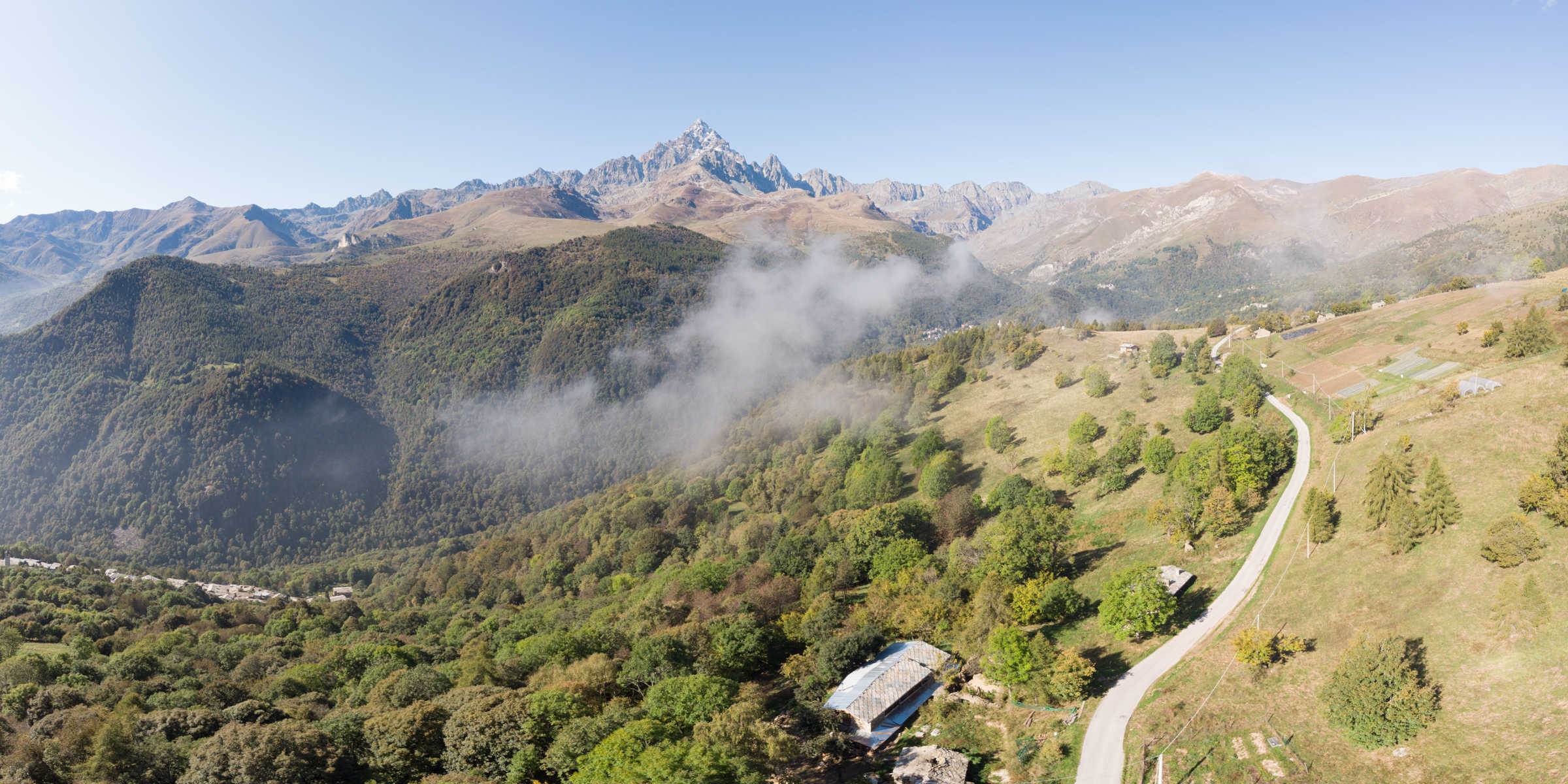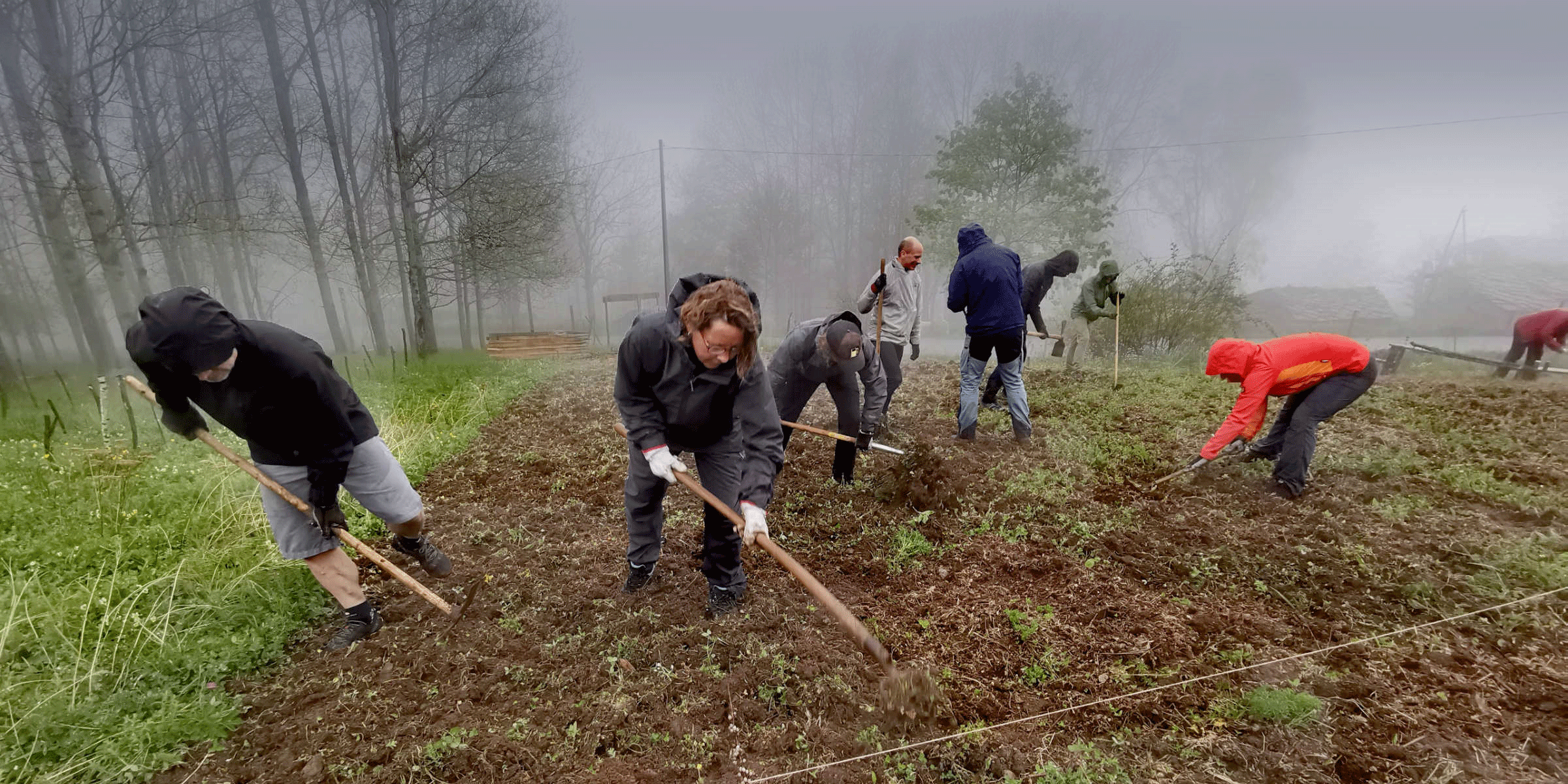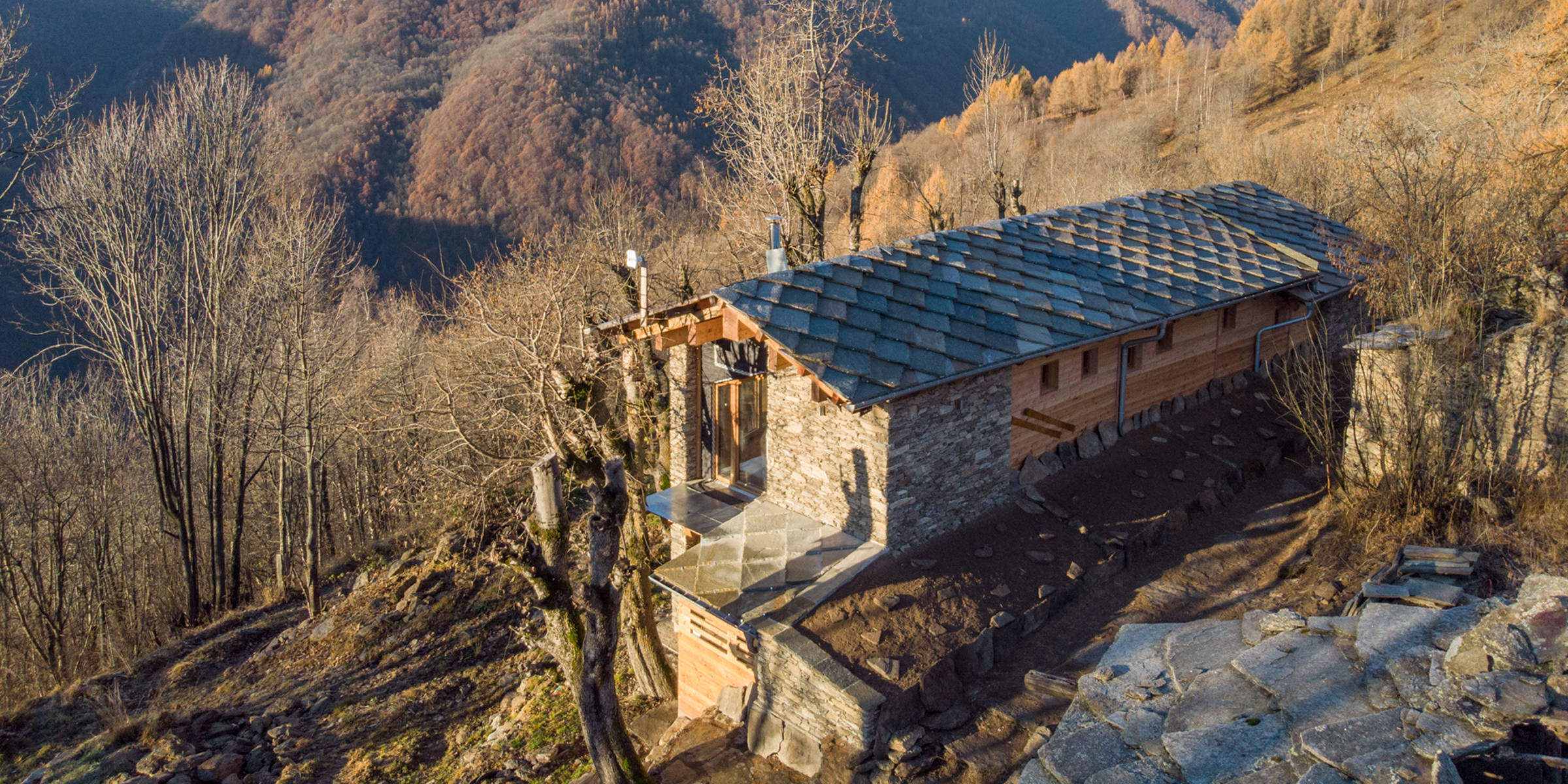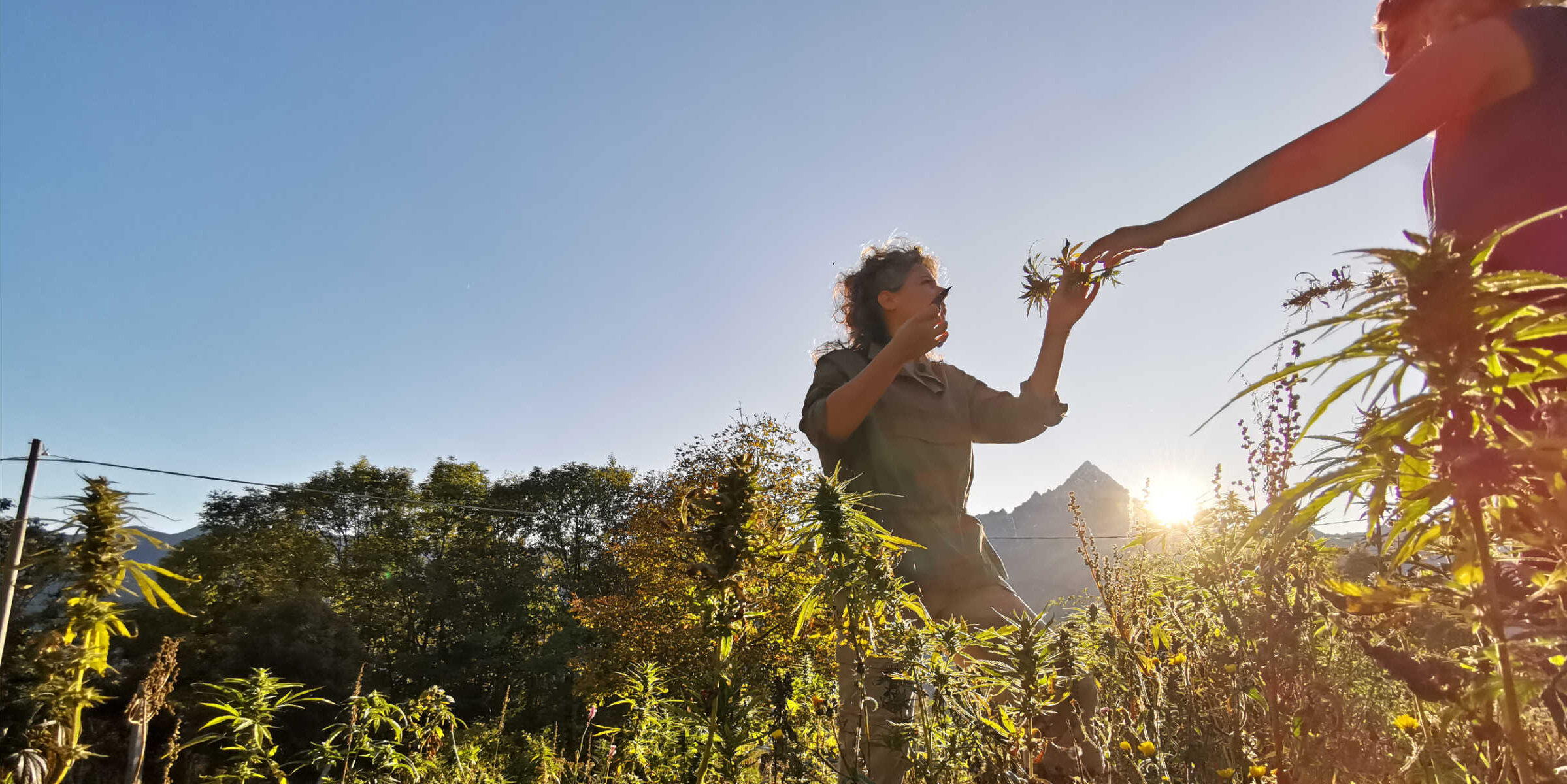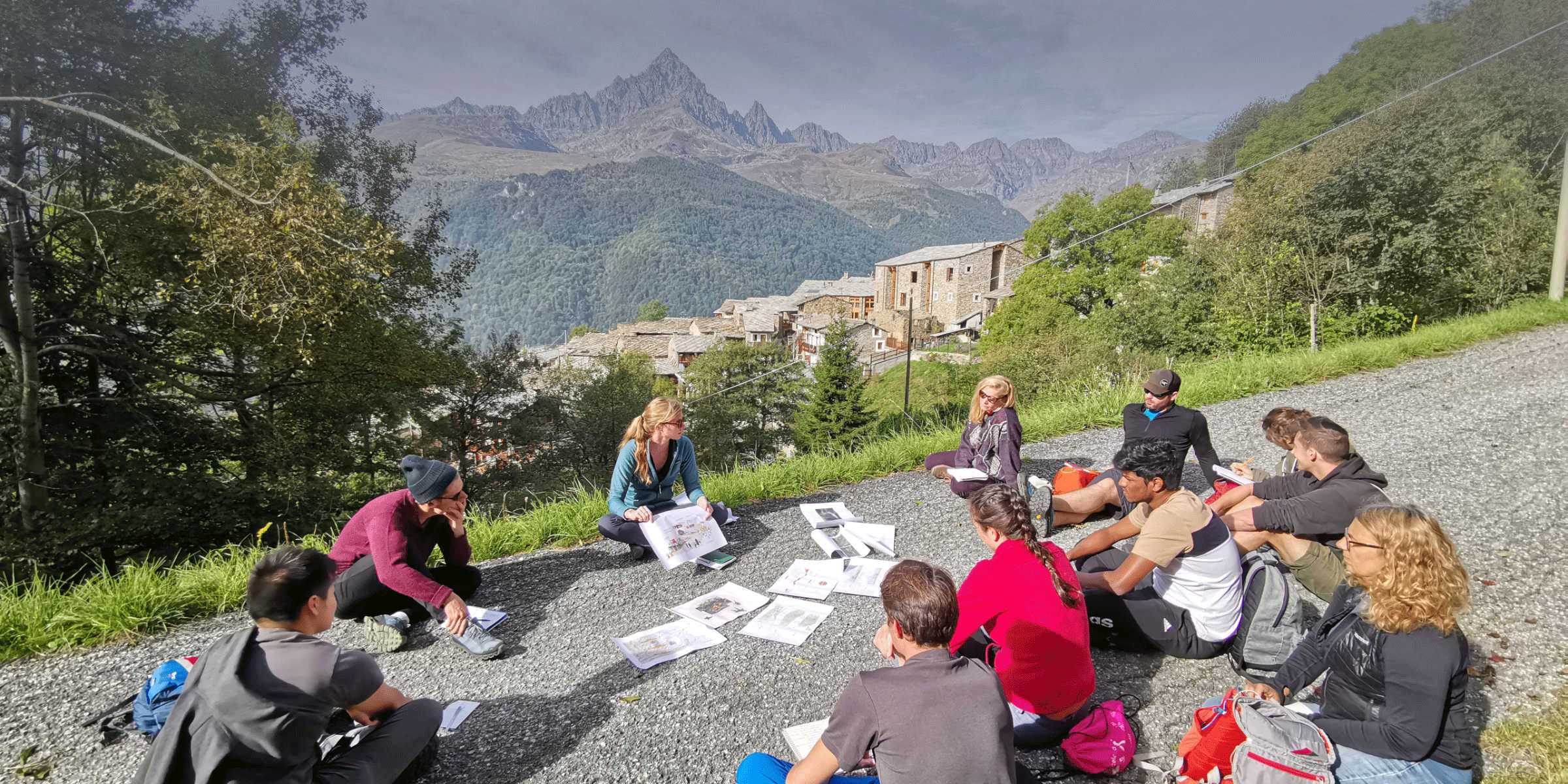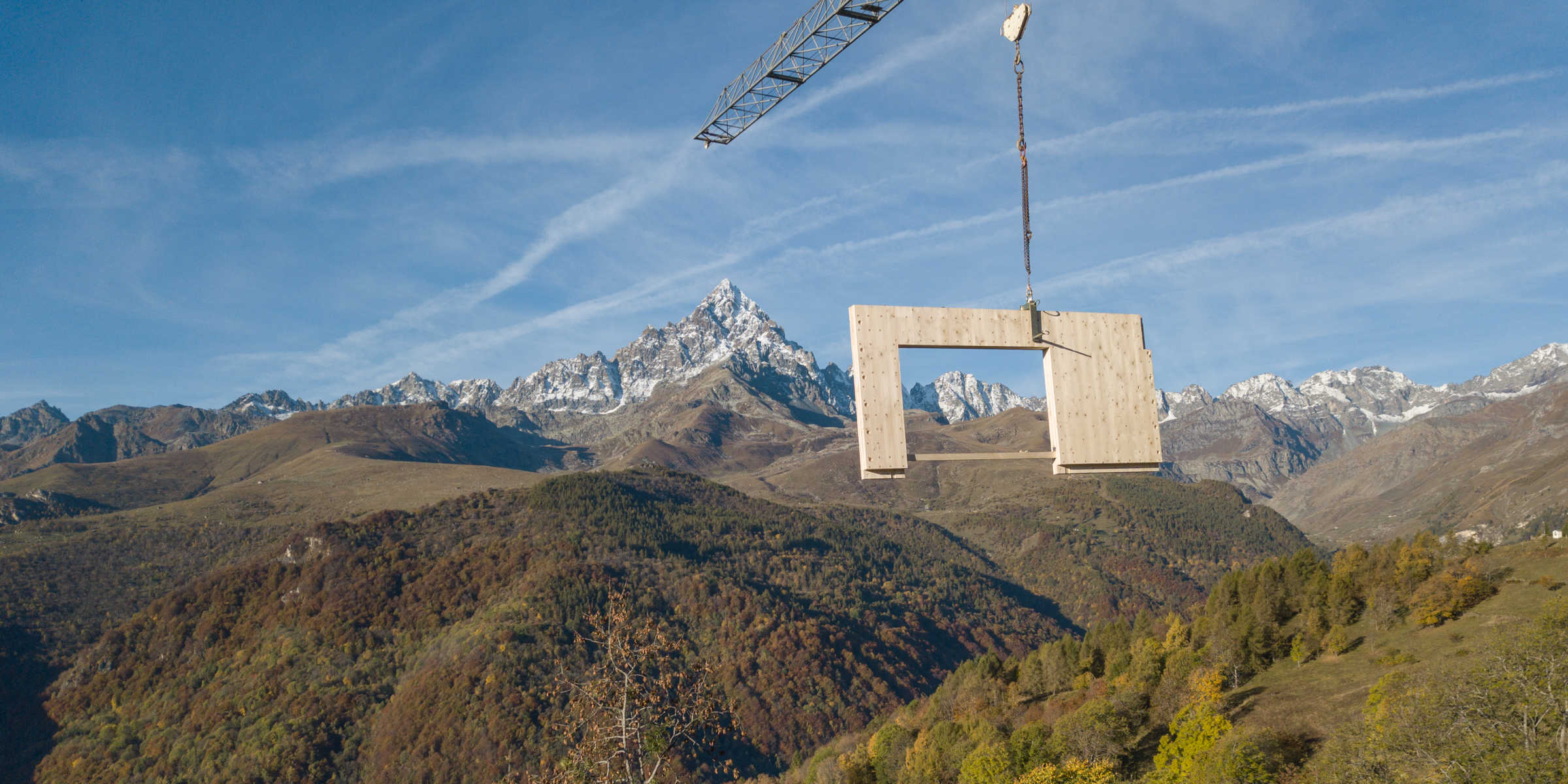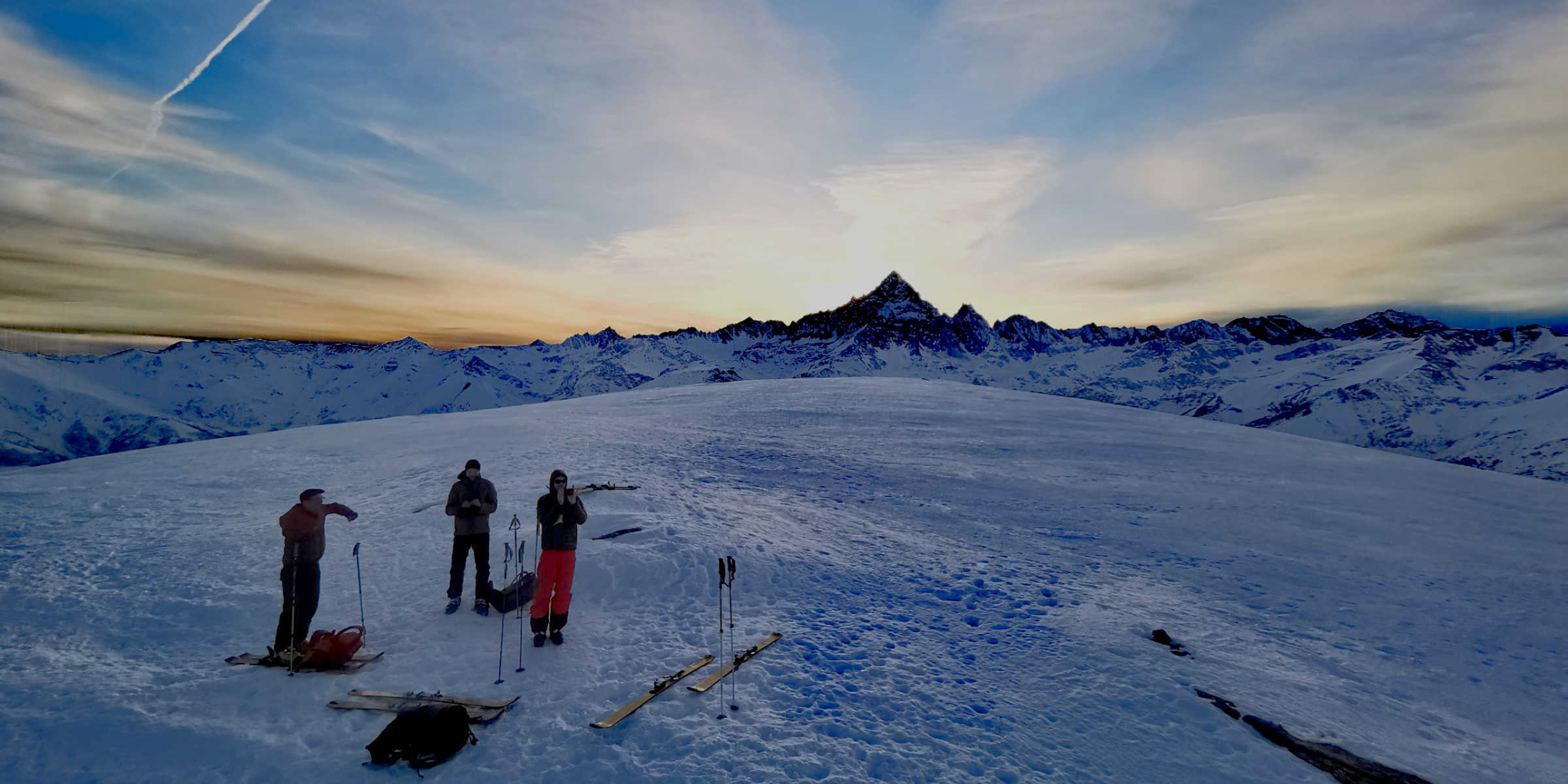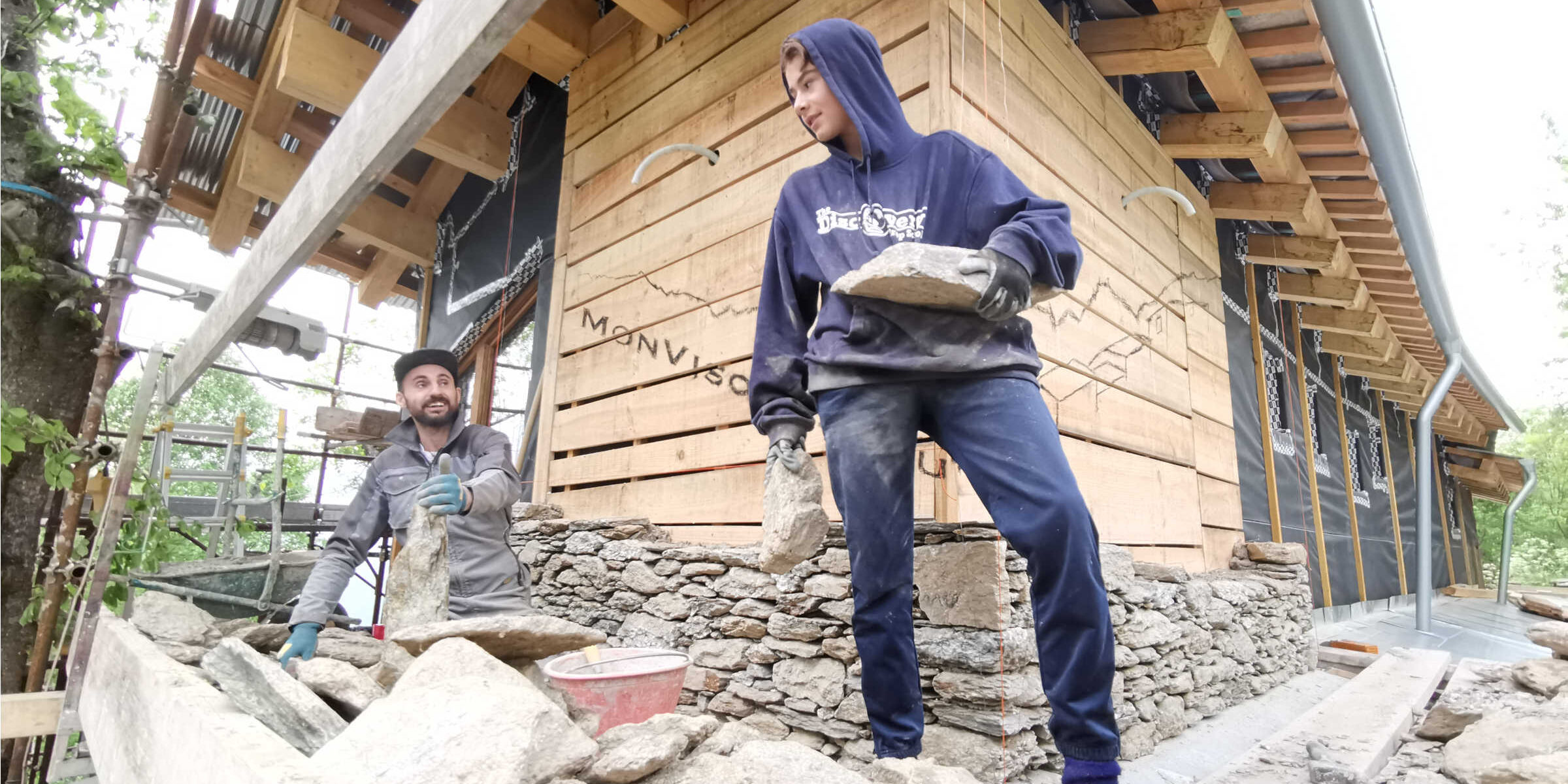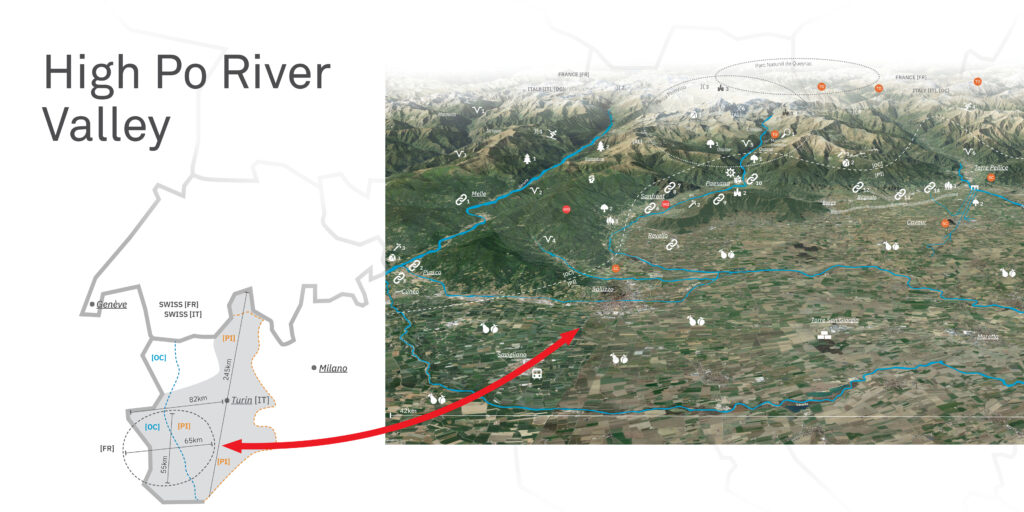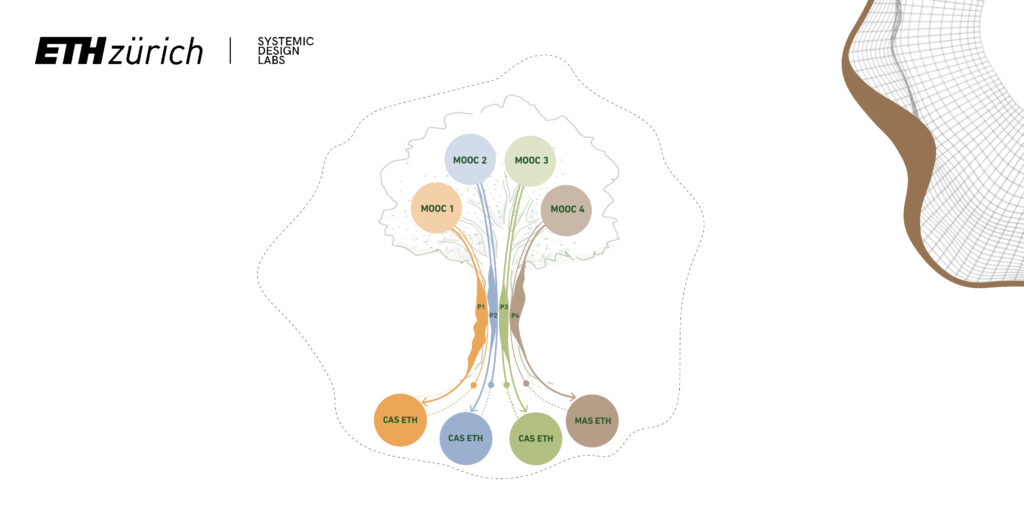The MonViso Institute
44°69′70.99″N 7°18′98.87″W
1500m asl
Welcome to MonViso Institute, a living systems lab for research, education, entrepreneurship and new living on sustainability transitions and regenerative design. We are placed in the High Po River Valley, at the foot of Monte Viso, right at the Italian border with France.
Benvenuti all'Istituto MonViso, un laboratorio di sistemi viventi per intrecciare ricerca, educazione, imprenditorialità e nuova vita sulle transizioni della sostenibilità e sul design rigenerativo. Ci troviamo nell'Alta Valle del Po, ai piedi del Monte Viso, proprio al confine italiano con la Francia. Visita le pagine di impegno locale
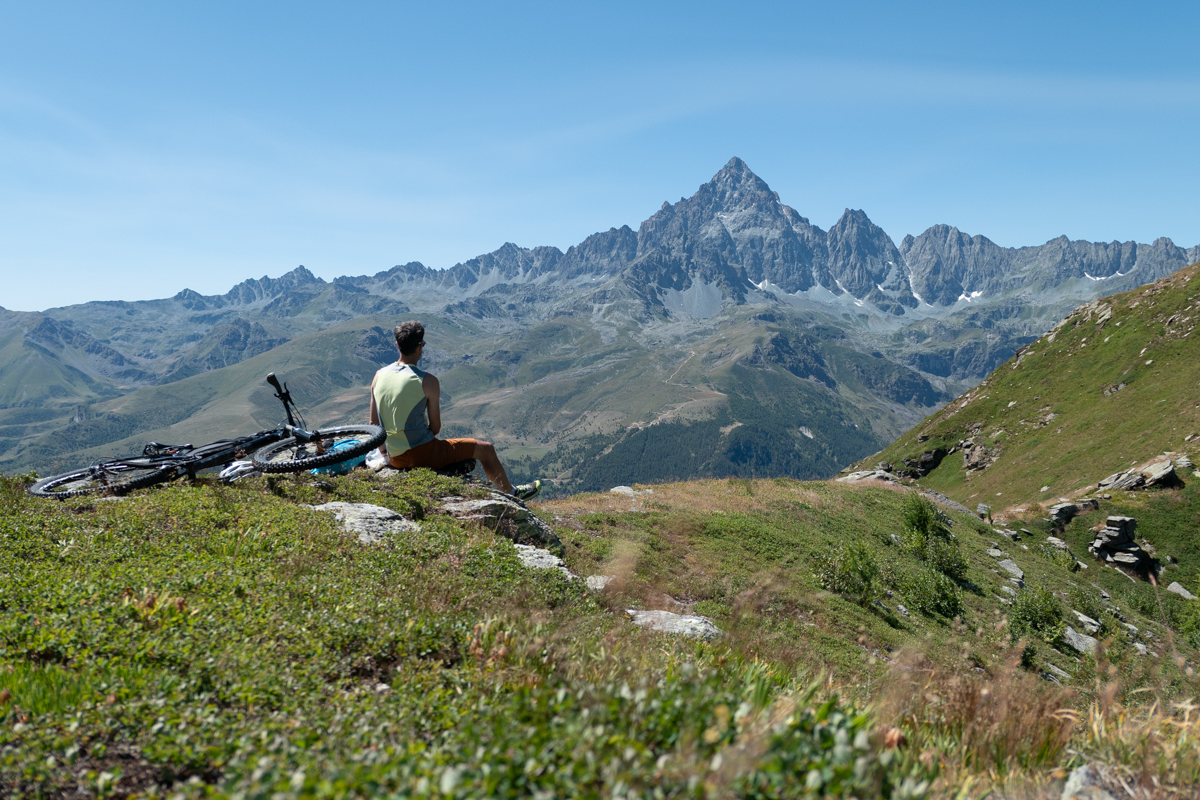
"Let's re-think how we want to live now and in the future: The MonViso Institute is a living systems lab - a place with open system boundaries for exploring and experimenting with regenerative futures within real-world unpredictability. This place of mind informs a universal state of mind: navigating with systemic design to address complex challenges on a global scale through local, place-specific responses at the intersection of ecology, anthropology, and systemic innovation.
We design in real, we weave relations, we unfold opportunities and build synergies between people, place, projects, and ecosystems, navigating theory and practice - with the common goal to co-create more resilient regenerative ways of living, blending science, local traditions, regional resources, embodied relations and global openness."
Tobias Luthe, founding director
A fluid bioregional regeneration weaving map
This bioregional regeneration map is a living prototype of a two-dimensional representation of cross-governance regeneration, developed as part of the MVI research activities. The map is deeply grounded in resilience, circularity, governance and bioregionalism science while tapping into place-specific land use, culture, supply chains, and system embodiment. More will be shown on this ongoing research here soon.
Partner of the global ETH Zurich learning system
MonViso Institute is a co-founding partner of the Designing Resilient Regenerative Systems (DRRS) program offered by Systemic Design Labs at ETH Zurich. The Massive Open Online Course (MOOC) series and the executive study program (CAS/MAS) are about creating a positive impact in complex systems as part of learning communities. MVI is co-designing the DRRS content and contributing real-world experimentation to this high-level learning program. Read more
News
Systemic Cycles guide course
This new course certifies Systemic Cycles weaving guides, taking place in May '24 … Read more
ETH Master in Regenerative Systems
MVI is partner in offering the ETH Zurich Master program in Regenerative Systems
The next CAS is starting in May '24... Read more
Retreat "Renewal - The Way Out is In"
Mindful Self-Compassion with Inner Development Goals and Nature Connection (Awake in the Wild) This course takes place July 9-14 '24 Read more
MVI highlights
Watch us weave
Engage
